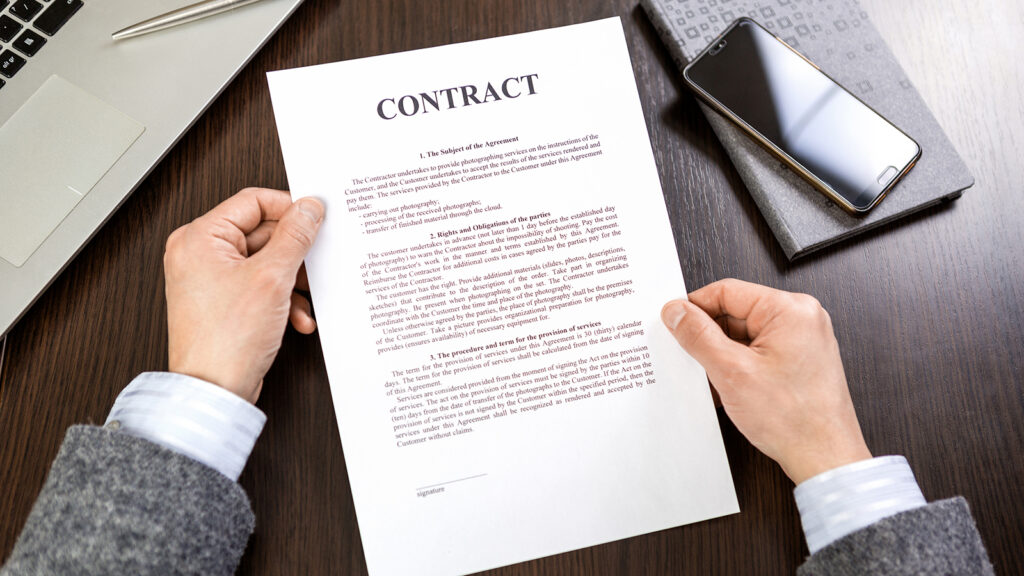Are There Different Types of Notary Publics?
Although the types of notary documents that need to be notarized can vary greatly, there are only a few different types of notarizations. It is the customer’s responsibility to identify which type of notarization they need when requesting notary services.
Notary Publics are not permitted to decide on the type of notarization for the signer. The Notary can explain the different types of notary services, but the customer needs to choose the one that best matches their needs based on the document to be notarized.
Notarized Document Examples
The different types of documents commonly requiring notary services are listed below. This list is not all-encompassing and will vary from state to state. Please note not all Notaries in every state will provide services for these documents.
- Affidavits
- Certified copies of documents
- Execution/Authentications of international documents
- Home transfers
- Mortgage refinancing documentation
- Passport application documentation
- Personal property security agreements

- Promissory notes
- Proof of identity for travel purposes
- Purchase side of foreclosures
- Residential & commercial real estate transfer
- Travel letters for minors
- Sponsorship letters
- Statutory declarations
Types of Notary Documents and which are the Most Notarized Documents
Acknowledgements
One of the most common types of notarization are acknowledgments. Acknowledgements are required for legal documents that pertain to valuable properties such as mortgages. A Notary will validate the document presented as well as the required identification needed to confirm the signer’s identity.
Jurats
Next is Jurats. Jurats are a more complicated type of notarization. They validate the document’s authenticity and require that the signer take an oath of affirmation where they are sworn in by the Notary. The signer must wait until they are in the presence of a Notary to sign the document and must present valid identification so that their identity can be verified.
If documents requiring an oath are found to be fraudulent, or it is later discovered that the signer lied about the contents in the document, they could face penalties in court.
Notaries must make sure when they administer an oath of affirmation that the signer answers with a “yes,” not “ok” or “yeah.” Head shaking to confirm “yes” when an oath is administered is also not permitted by the signer.
Copy Certifications
Next, we have copy certifications, which are not permitted in all states. Copy certifications are typically self-explanatory. They help verify that any copy of an official government document is the original document. The most common documents that require copies are items that generally come with a seal on the original document.
These include drivers’ licenses, marriage licenses, diplomas, social security cards, leases, medical records, vehicle titles, etc. If you are in a state that permits copy certifications, it must be authenticated by a Notary to make it legally binding.

The state of N.Y. does not allow for copy certifications of a legal document; however, they enable the Notary to notarize a letter written by the customer certifying that the customer made a copy of an original legal document. The signer certifies that the copied document is valid. The Notary is not authenticating the copied document as valid but rather the customer’s written statement that they provided a valid copy of their legal document.
Signature Witnessing
Finally, we have Signature Witnessing, also one of the most common types of notarizations. This type of notarization is where the signer will present the Notary with the documents and photo identification before signing. Once the Notary has verified that the person presenting the documents is who they say they are, they witness the person signing their signature on the record. This document will then require that the Notary place their stamp on the document, print their name, and date the document.
The requirement to use an imprinted seal will vary from state to state. Some states will require Notaries to only use an inked stamp, while others require an embosser to be used with an inked stamp or use one over the other. The state of N.Y. does not require the use of an inked stamp but permits hand-written seals. Be sure always to check your state laws to confirm.
Interested in reading more? Check out our article on What is a Notary and if you would like to learn the difference between a legal assistant and a paralegal, National Paralegal & Notary has a great article on What you need to know.
Written by:

Kim Jones
Notary Roc City Notary Services
Kim Jones is a veteran mobile Notary and Notary Signing Agent with over 15 years of experience. Kim is the Owner and Operator of Roc City Notary Services in upstate NY.
Notary Jane: Kim Jones
Instagram: @roccitynotary
Website: RocCityNotary.com

